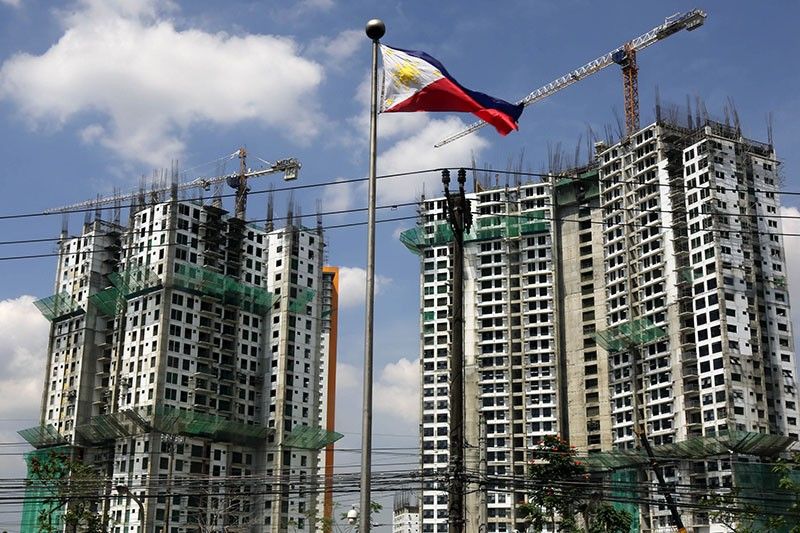Commentary: Sustainability, business value through ESG initiatives

The business sector, through its Environment, Social and Governance (ESG) initiatives, can take the lead in advancing the country’s sustainable development.
Business is all about creating value for its stakeholders. Their executives’ deep understanding of the underlying link between ESG principles and business value is essential.
Businesses must recognize the need to adopt better business strategies to better manage possible risks and opportunities the future has. Through ESG, businesses are better equipped in helping their operations continue to succeed as stewards of the environment that better manages resources to eliminate wastes while providing the needs of its stakeholders.
As part of its sustainability campaign, the Philippine Business for Environmental Stewardship (PBEST), together with the Stratbase ADR Institute, organized a virtual event entitled “Moving Towards a Sustainable Future Through ESG” to highlight the role of the private sector and their ESG initiatives towards the environment and the country’s sustainable development.
According to Carlos “CP” David, convenor of PBEST, businesses play a crucial role because of their characteristics to solve environmental and societal problems, such as being “more efficient, using monitoring and evaluation tools, key performance indicators, putting in risk management processes, and most importantly, embracing technology and innovation in the process.”
Likewise, in the same event, Department of Environment and Natural Resources Undersecretary Analiza Teh said that the Philippines should look at information and communications technology (ICT) to accelerate the country’s climate action, and use data to understand climate change and its impact on the environment.
However, Teh also recognized that pushing for a more technology-enabled economy will create more e-waste. This is where the private sector, with its ESG initiatives, comes in.
Data gathered by businesses’ operations can be used to improve or create more compatible systems to efficiently recover more of the valuable resources in the environment, as well as reduce waste generation.
An example of this is Globe Telecom Inc. Being one of the businesses that are heavily involved in ICT, it conducts an e-waste zero program to recover old or used electronic devices and retrieve recyclable materials and mineral components.
According to Yoly Crisanto, senior vice president for Corporate Communications and chief sustainability officer of Globe Telecom, proceeds generated from this initiative are given to local schools.
Metro Pacific Investments Corporation (MPIC) is also actively using technology throughout its businesses. According to June Cheryl Cabal-Revilla, chief finance officer and chief sustainability officer of MPIC, they have leveraged technology to narrow down their processes to cut their gas consumption, which brings about fewer carbon emissions.
Meanwhile, Meralco, a subsidiary of MPIC, is shifting towards cleaner and greener energy through technology. According to Raymond Ravelo, vice president and chief sustainability officer of Meralco, “in the next five years, the company is looking to ‘greenify’ its supplies portfolio by securing 1,500 megawatts (MW) of clean energy contracts”.
Meanwhile, in food manufacturing, businesses also take the lead in sustainability through their ESG initiatives.
Coca-Cola Philippines, through its World Without Waste Program, committed to having 100% of its bottles collected, recovered and recycled by 2030. Antonio Del Rosario, country president of Coca-Cola Philippines, added that recycled PET plastic bottles coming from their PETValue recycling facility will be used in producing new bottles.
Likewise, Mondel?z International is also committed to preventing its products from polluting the environment. According to laywer Joseph Fabul, country manager for Corporate and Government Affairs of Mondel?z International, the company decided to integrate its recycling program with its “Joys Schools” program.
Post-consumer plastic wastes are collected and recycled to produce playgrounds in the schools that they have adopted. Other collected waste will be recycled into disaster relief shelters, or used as fuel for cement manufacturing.
While ESG has yet to have a standard, it is always guided by science, innovation and the latest data. Lawyer Renato Salud, senior vice president for Corporate Affairs and Sustainability of JG Summit Holdings Inc., said that ESG allowed their company to have better risk management processes, while science and innovation drive their businesses to make better choices in creating economic value throughout the country.
Likewise, Renato Redentor Constantino, executive director of Institute for Climate and Sustainable Cities, said that due to science’s self-correcting characteristics, stakeholders need to listen to it, and integrate it in their long-term plans. This will allow them to institute an agenda that is responsive to the constraints that will be imposed in the next few decades.
ESG serves as a guide for businesses in determining how to reorient resources towards long-term sustainability. However, businesses cannot do this alone.
Besides the government, support from the civil society organizations (CSOs) is essential. Ludwig Federigan, executive director of Young Environmental Forum, said that CSOs can help build the political will, while non-government organizations can serve as alternative democratic institutions.
Thus, businesses must further expand their ESG initiatives and work with all stakeholders. Because every business sector-led initiative, that is guided by ESG, holds a promise of a more sustainable future that generates positive long-term returns, not just for businesses, but also the economy, society and the environment.
Felix Vitangcol is a fellow for environment of Stratbase ADR Institute and secretary-general of the Philippine Business for Environmental Stewardship.
- Latest





























